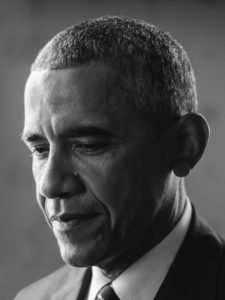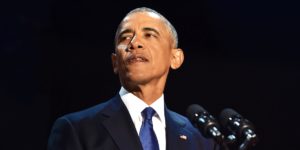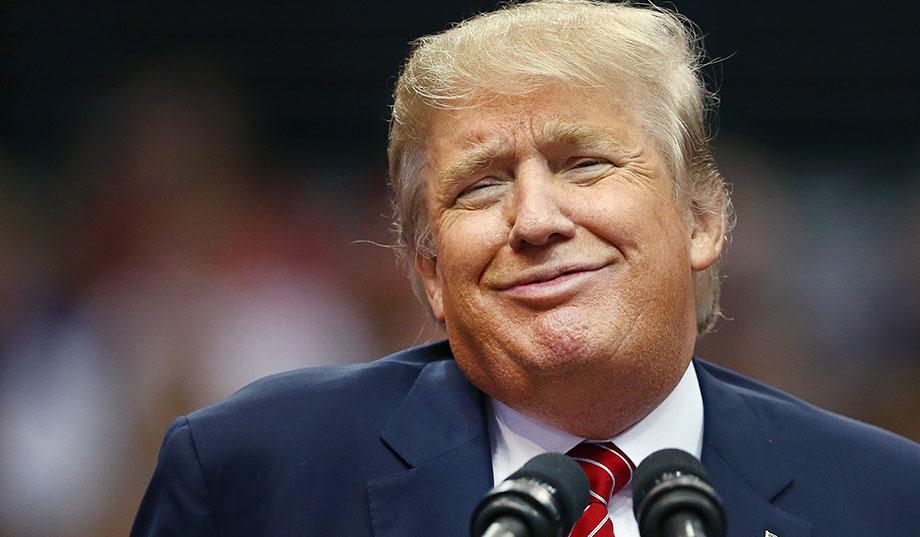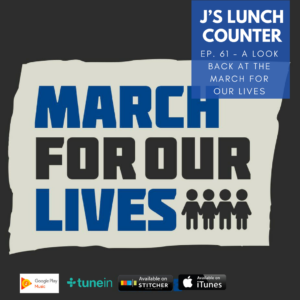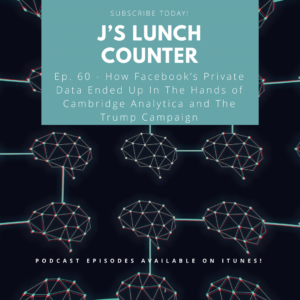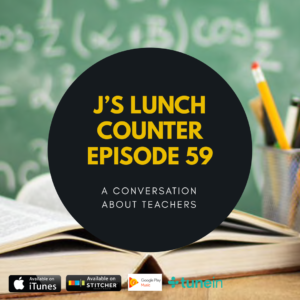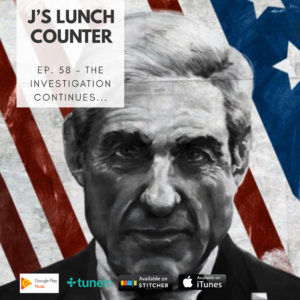The Problem with America’s Race Problem
 Videos, graphic images, of black men being gunned down, choked to death, beaten, shot and killed under the color of authority by the police entrusted to enforce the law and to protect and serve. Each time, it’s getting less and less abstract for me.
Videos, graphic images, of black men being gunned down, choked to death, beaten, shot and killed under the color of authority by the police entrusted to enforce the law and to protect and serve. Each time, it’s getting less and less abstract for me.
Rodney King captured the nation’s attention (and some of our hearts) DECADES ago. Now, Rodney King is happening every week. It’s becoming the new normal, and as tough as I am, as intelligent as I am – I’ll say it – it’s scary…and it hurts. But the more I process it, the more I realize that one of the challenges to understanding the issue of race is the dangerous ease in which it becomes simplified by ignorance and grief.
There’s a quote from Season 2 of the West Wing (a show you’ll want to spend some time with if you want to understand me, and my writing). Spoiler Alert – There was an assassination attempt of the President, later discovered to be motivated by his white daughter being in a public relationship with his black staffer. The shooter later admits that the President wasn’t even the target – Charlie, the black staffer was the target. As the President tries to console one of his most trusted advisors who is struggling to reconcile what has happened, the advisor asks the President, “why does it feel like this? I’ve seen shootings before…” The President, rising from his chair, tells him “It wasn’t a shooting, Toby. It was a lynching. They tried to lynch Charlie right in front of our eyes…can you believe that?”
We are a society struggling to come to grips with the reality right in front of us – we are witnessing the modern day lynching of black men.
(Most of you will read and process this post the same way you view and process the videos themselves, and the public outcry that follows – through the lens of your own life experience. That’s not only fine with me, but that’s what I expect. While many would read hours of Facebook posts and deduce that everyone they know is convinced of their own truth and would shun all who don’t see the world through their lens, please understand that I’m not trying to change minds and I’m certainly not here to condemn your disagreement. I’m also not arguing whether it’s fair or accurate to classify these incidents as modern day lynching, I don’t think they are or believe they are – they are.)
For months, I’ve wrestled with my own emotions and grief, I’ve wrestled with reason and logic, I’ve wrestled with fear and confusion, I’ve wrestled with the facts and the images I see with my own two eyes, and I’ve even wrestled with my faith and the notion of racial reconciliation. And I confess that today, after all that has happened – I’m still wrestling with all of these things – in my head and in my heart.

Dallas police officers comfort each other Friday, July 8, 2016, in Dallas in front of police cars decorated as a public memorial in front of police headquarters, in honor of Dallas police who were killed. (AP Photo/Gerald Herbert)
My heart hurts for men and women who have lost their lives unjustly at the hands of those designated to protect them, those who have been given authority over their victims. My heart hurts for the officers who get up every day and do a job that the overwhelming majority of us aren’t brave enough to do – risking their safety and their lives to protect ours, whose life work has been so badly tarnished by those whose intentions are outweighed by their conscious and subconscious biases and fears. My heart hurts for the families of those black men and those officers who have been killed unjustly. My heart hurts for my wife who fears the unthinkable for her husband every time he takes the dog out at night. My heart hurts for my cousin who fears what this new norm means for him and his brother. My heart hurts for my future son, whose innocence will one day be shattered when I sit him down and tell him that his father loves him and His Father loves him, but there are those in the world who will hate him, who will fear him, who would harm him, not because he’s done anything wrong, but simply because he is who he is. My heart hurts for my peers who struggle to articulate their feelings, who posture themselves against an entire race of people – against all and not some.
We’re processing our grief in an unhealthy way. We no longer communicate – we instead throw our feelings up on a social media post, like a sign in our front yard, with guns pointed at anyone who dares to walk by and read it and say anything. We don’t talk to our friends from different backgrounds – we banish them. We make largely false assumptions about each other based on what we fear most in our peers. But we’re also becoming an anti-intellectual society that is no longer interested in learning. Curiosity is a vice and a changed mind is a weak mind. Entrenchment is principled, and ignorance feels great, and we’re so asleep in the media’s nightmarish view of the way things are that waking up has become one of the most difficult things we might ever do with our lives.
But I said earlier that I’m not here to change minds. I could go all day listing the ignorance and hypocrisy of politicians who declare the virtues of law and order and who tout the strength of an unjust system of justice. I could scream with anger at those who point out self-reliance and responsibility to teach our black kids better, those who say “if only they showed respect” to those who likely would have never even acknowledged their basic fundamental humanity. I could give my last breath arguing with those who say that “All Lives Matter” as if this country wasn’t built on the notion that “White Lives Matter Two-Fifth’s More Than Black Lives Anyway So That’s How We’ll Justify Enslaving Black Lives For Generations of Free Labor and Unpunished Rape”. I could argue those things – but I could also run my head into a brick wall until I’m concussed and likely achieve the same outcome.

Demonstrators raise their hands toward a line of police officers on Highway 880 during a protest against the police shootings that lead to two deaths in Louisiana and Minnesota, respectively, in Oakland, California, U.S. July 7, 2016. REUTERS/Stephen Lam
I’m largely uninterested in getting mired in disagreement about Black vs. All, Black vs White, Black vs. Blue. I believe those arguments are manufactured, they miss the point, and those who are taking up those arms are usually shrouded in their own ignorance and fear. Fear is the result of this construct, but the ignorance and simplicity of many of these “Black vs. All” arguments have long since been counterproductive to actual progress. Sure, I have thoughts on that discussion, if that really matters to you, and my thoughts are predictably complicated considering my background.
(My lens – I’m a 31-year-old black man who has lived all of my life as a racial minority in an overwhelmingly white, conservative part of the country. I’ve been called a “nigger” for being black, I’ve watched my white friends be called “nigger lovers” for playing with me, and I’ve watched my white ex-girlfriend be called a “nigger lover “for simply eating a meal with me. I’ve seen racial epithets of President Obama in person, at my alma mater, of which I was once elected Student Body President. I’ve argued my hurt with friends, I’ve cried to my mom, I’ve even tried to litigate my pain in school newspaper editorials when my alma mater proactively declared the Ku Klux Klan to be “welcome on our campus” in a sign of what I presume to be a demonstration of free speech, consequences and feelings be damned. I’ve benefited from being a racial commodity who exceeds the expectations of those who view the world from their lens of great privilege and power, and I’ve also been the victim of that same privilege and power.
I’m an educated black man who believes that black lives need to matter in this country they way that all other lives matter. I’m an attorney who has seen firsthand the disparities in our criminal justice system that easily dispenses justice to blacks, but struggles to do the same for all others, even in the face of overwhelming evidence that exceeds all reasonable and unreasonable doubt. I’m also the proud son of a father who devoted his life to serving his community as a police officer, a man as imperfect as the rest of us who I still consider to be an example for fair policing, a man who felt empathy for young black men who ended up on the wrong side of the law, but a man who used his authority not only to protect and serve, but to uplift. My father used his badge to serve those who didn’t have fathers, to encourage and mentor and pray for and support and believe in them. He understood that his badge wasn’t a charge to protect US from THEM, it was a charge to protect US and to serve THEM. His compassion and his desire to listen wasn’t rooted in his race; rather, he did the real hard work of learning to let his interactions be shaped by the lens of his faith – a faith that expresses love and acknowledges humanity and accepts brokenness and grows with time and effort. If more police departments would be willing to do that kind of heavy lifting, this would be a different problem).
So that’s a small fragment of me. Interesting? Maybe. Transparent? Sure. Change your mind, yet? Nahhh…I didn’t think so.
My point? Well, no pun intended, but my point is that this is not black and white. Race is perhaps one of the most complex social constructs in our modern society, and we have to approach it as such. Right now, that construct is soaked in emotion and fear, so the dialogue sounds a lot less like educated sociologists and objective thinkers and curious citizens and more like grieving family members and accused enemies and blind, ignorant people with no sense of civic duty. Grief is an important emotional, cognitive, physical and behavioral response to the trauma of these tragedies. Ignorance is an understandable result of the perpetual dumbing down of society and the result of the lack of virtue our society has placed on nuance, intellectualism, and tolerance. In almost all other contexts, neither grief nor ignorance are lenses that lend themselves to productive dialogue or solutions-oriented decision-making, or even progress through tolerance and openness. Yet, these are the struggles of our humanity, this is who we are, and, these are the lenses which we MUST overcome.
Several years ago, I was inspired by the image of Woolworth’s Lunch Counter, a seemingly harmless symbol of American freedom, a vessel for coming together for dialogue, a hub for nourishment of some kind. But in the 60’s, that lunch counter became the object of great debate, of principled protest, as four young black men declared that they have the right to do something as fundamental and necessary to our humanity as eating a meal in public, a right that was challenged and fought by a fearful, ignorant, racist majority. I am struck by its simplicity. Not integrated schools, not interracial marriage, not religious freedom or economic equality or the right to participate in public discourse – they had to first fight for the basic right to show up in a public place and buy a sandwich. Something so simple, yet we actually fought as a nation over whether these men had that seemingly basic fundamental right.
Those men had to fight for the right to buy a sandwich.
They had to fight for the right to sit down at a lunch counter and engage in conversation, over a meal, in a public place. I honor Joseph McNeil, Franklin McCain, Ezell Blair, Jr. and David Richmond by creating this space – J’s Lunch Counter – as a place to dialogue, to share, to connect, a place to argue, to debate, to protest, a place to gather and celebrate. It is a safe space for ideas to be shared and to be challenged, for people to learn and become engaged. J’s Lunch Counter is a place where men and women come together for good, for growth, for progress.
